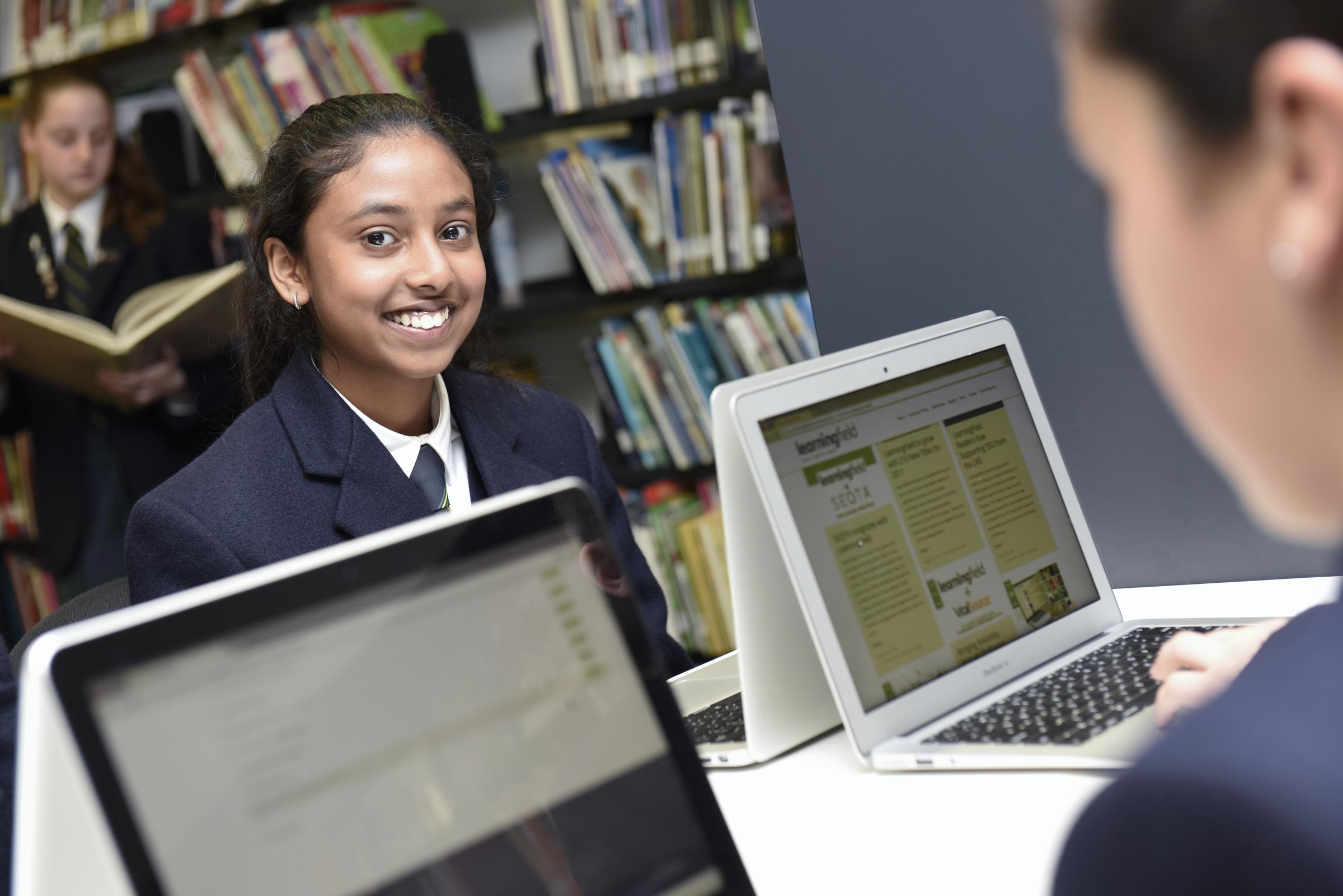Learning & Teaching

From the Deputy Principal - Learning and Staff
Learning News
The term has been busy with a variety of events and we find ourselves immersed in formal assessments that support our Learning and Teaching Programs across all year levels.
Exam Preparation
As you are aware, the examination period is fast approaching. Students have already received the examination timetable and should be preparing adequately. Students have also been informed about the details and procedures to follow during this period.
Exams are an important part of the learning process at the College. Exams provide students with the opportunity to demonstrate how well they are able to recall and apply their learning under timed conditions.
Time management is crucial in the lead up to this period. Managing home study, sporting commitments, family obligations and in some instances a part time job can be challenging but is manageable if students are organised. A study timetable may work for some students or setting revision goals that can be used to help guide and motivate learning. Teachers continue to be the greatest resource for students and students should seek additional help during this time if required.
Using Technology to Assist in Study
There are a number of interactive tools and websites that can assist in both revision and the establishment of good study habits.
Websites:
- Youth Central: Study tips and resources
- Bubbl-us: Mindmapping made easy
- Study Vibe: Explore all this site has to offer, there is a range of study tools, research guides and tips for goal setting and motivation
Applications:
- Quizlet: Makes studying fun, easy, and effective. Create your own sets of study material or choose from millions created by other Quizlet users. Then master your subject with powerful interactive learning tools including memory tests or race against the clock in a game of match.
- Khan Academy: Over 10,000 videos and explanations in math, science, economics, history, and many more
- Voice Record Pro: Record yourself reading your notes or textbook and listen to it to assist in your revision.
Study and Exam Preparation
As students approach the assessment and exam period, there are tips that can assist in the preparation.
1. Find out about the exam
Find out as much as you can about the exam. Questions to ask include:
- What type of exam is it (for example, multiple choice, essay, open book, take-home)?
- Will there be a choice of questions or tasks?
- How much will each question or task be worth?
2. Ask for help
Do not feel bad if you need to ask for help. People you can talk to about exams include:
- Teachers
- Family members
- Friends and other students
- If you are feeling really stressed you might also find it helpful to speak to a counsellor.
3. Sort out your subject material
Before starting to review a subject it helps to:
- Check you have all of the handouts
- Put your notes in order
- Read over any course outline or subject guide
- Write your own summaries of each textbook chapter or section of the subject guide
- Getting all your gear together makes it easier to find what you need while you are studying
4. Review past exam papers
If possible, look at previous exam papers from the subject and familiarise yourself with the structure and format. Places you can get past exam papers from include:
- Your teacher
- The Victorian Curriculum Assessment Authority
- When reviewing, practice answering the questions within the specified time limits.
5. Know where to go
Make sure you know where and when the exam is happening. You do not want to miss your exam! Here's how to make sure that does not happen to you.
- Check your exam timetable for time and place details
- Do a practice run to find out how long it takes to get there
- Make a list of everything you need to take with you (for example, calculator, pencil, ruler)
- Do some study at the same time as your exams (for example, if you have an early morning exam, practice getting up studying earlier in the day)
6. Do not cram
Staying up all night to cram will only stress you out. It is better to just review what you've already studied and get an early night. That way you will be as refreshed as you can be on the day of your exam.
If you want to do some preparation the night before, keep it simple:
- Get all your materials together
- Read over your notes
- Test yourself on key concepts
- Set your alarm
7. Keep your cool
Fronting up to an exam can be nerve-wracking, but here are some tips for staying calm:
- Do not talk too much to other students before the exam
- Try to get there with time to spare so you do not arrive all rushed
- Make sure you have a decent breakfast
- Listen to some inspiring music on the way to the exam
8. Use your reading time
The way you use your reading time can really help you make the most of your exam time. Here are some ways to use your reading time well:
- Read all of the instructions very carefully
- Scan the whole exam paper
- Check how many pages there are
- Check how much each question is worth
- Plan which questions to answer first (consider starting with questions you are confident about)
- Plan how much time you will spend on each answer or section
- Start thinking about your answers
9. Break the questions down
A great tip for any exam is to break the questions down to make sure you really understand what you are being asked.
Look for the key parts of the question. These can give you clues on how to answer it.
For example, for the question, "Explain the difference between study and revision", you could split this question into four parts:
1. Explain - give reasons to show how or why something is the way it is
2. The difference - what are the distinguishing factors between study and revision?
3. Study - what is study?
4. Revision- what is revision?
10. Review your answers
If you finish the exam before the time is up it is a good idea to go back over everything, even answers you are confident you got right. Try to:
- Review as many answers as you can
- Start with the questions you are least confident about
- Make sure you have answered every question
- Make sure you have answered every part of every question (some questions might have multiple parts)
I encourage all students to approach this time of the year in particular with a ‘growth mindset’. That is, students develop a mindset that focuses on a belief that their ‘basic abilities can be improved with motivation, effort and strategy’ and their goal is ‘to learn new things, master skills and knowledge and improve their personal bests’.
It is important that all students, when completing assessment tasks for this semester or completing their exams, to reflect on their learning throughout this semester and refer to the feedback they have received from their teachers.
VCE and VCAL Parent/Student/Teacher Interviews – July 19, 2018
The VCE and VCAL Parent/Student/Teacher Interviews together with Online Progressive Feedback from Canvas provide opportunities for parents and students to have genuine feedback on progress and performance. We encourage all parents to attend the interviews and to regularly review the student's performance. These interviews are an opportunity for parents and carers to evaluate student's progress and to plan for future improvements. We encourage the students to attend the interviews and play an active part in the meeting.
Subject Selection Process 2019
Early Term 3 students from Years 7 to 11 will be involved in the process of selecting their subjects for 2019. It is important that students be informed about the available subjects and that the selection of courses is suited to their interests and abilities.
An integral part of the process is that parents and carers discuss with their child the subject choices they wish to make for the following year. Information, advice and support will be provided to students when the process begins. Synergy will also be used to disseminate information to parents and carers.
Year 11 2019 Subj
